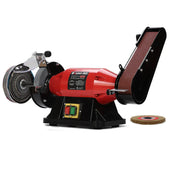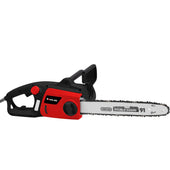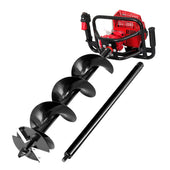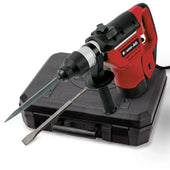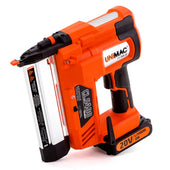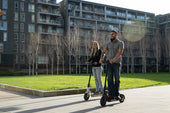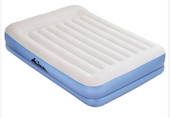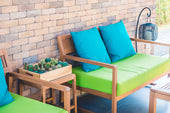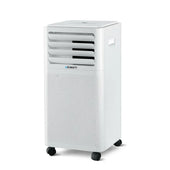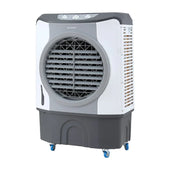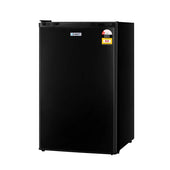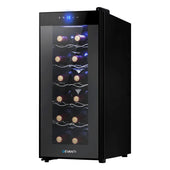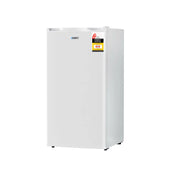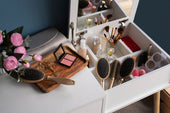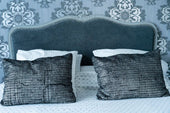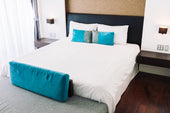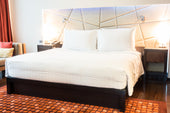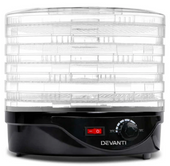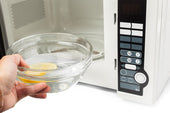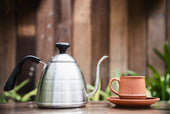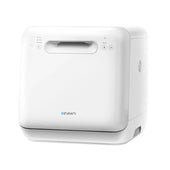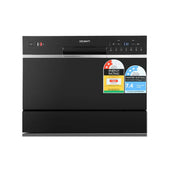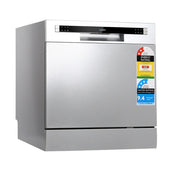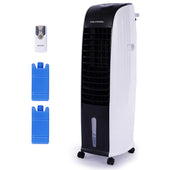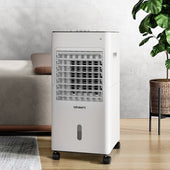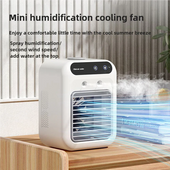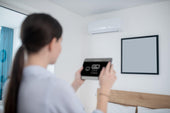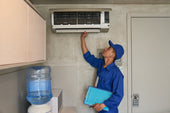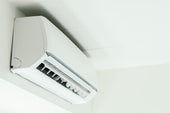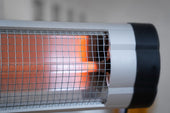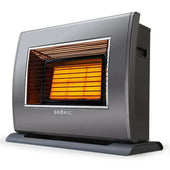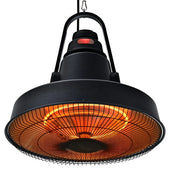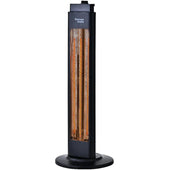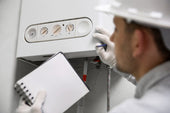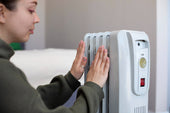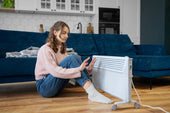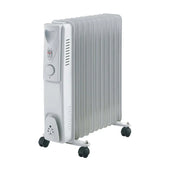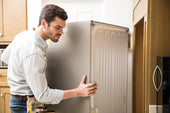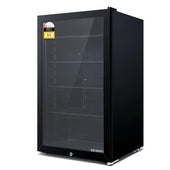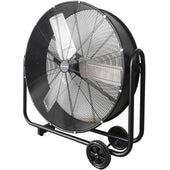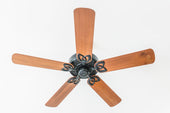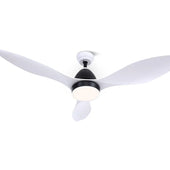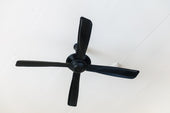Introduction to Home Security: Why Choosing the Right Safe Matters
Home security is a critical aspect of protecting valuable possessions and sensitive documents. Selecting an appropriate safe or lockbox goes beyond convenience; it plays a pivotal role in safeguarding against theft, damage, and unauthorised access.
The right safe ensures valuables are protected from risks such as:
- Burglary, by providing resistance to forced entry.
- Fire, with fireproof safes designed to withstand intense heat.
- Water damage, through waterproof models in flood-prone areas.
Factors like size, lock type, and material durability significantly affect reliability. A poorly chosen safe might compromise security, whereas a well-considered option offers peace of mind. Each household has unique needs, making an informed decision essential.
Understanding the Different Types of Safes and Lock Boxes
There are various types of safes and lock boxes, each designed for specific needs. Fireproof safes provide protection against heat damage, ideal for storing documents and valuables. Waterproof safes offer defence against floods and leaks, safeguarding items vulnerable to water damage. Gun safes cater to firearm owners by ensuring secure storage while maintaining accessibility.
Wall safes, often concealed within structures, offer discreet security. Floor safes, anchored into the ground, are built to resist theft attempts. Deposit or drop safes suit businesses, providing secure deposits without opening the main compartment. Electronic safes use digital keypads for added convenience, while biometric safes employ fingerprint recognition for enhanced access control.
Key Features to Consider for Maximum Security
When choosing safes and lock boxes, identifying essential security features ensures optimal protection.
- Locking Mechanisms: Select reliable options such as combination locks, biometric scanners, or digital keypads. Avoid inexpensive locks prone to tampering.
- Construction Material: Look for heavy-duty steel and impact-resistant materials to prevent forced entry.
- Fire and Water Resistance: Prioritise safes tested for fireproofing and waterproofing to safeguard contents against disasters.
- Mounting Options: Opt for units with bolt-down capabilities to prevent theft via removal.
- Certifications: Check for industry standards like UL (Underwriters Laboratories) ratings for burglary and fire resistance.
- Size and Capacity: Ensure adequate space to store valuables without compromising portability when needed.
The Importance of Fireproof and Waterproof Safes
Fireproof and waterproof safes are essential for protecting valuable items from unforeseen disasters. Such safes are designed to endure extreme heat from fires and prevent water damage during floods or pipe leaks. They safeguard sensitive documents, cash, jewellery, and digital storage devices that are irreplaceable or difficult to recover.
Features to consider include:
- Fire Ratings: Measured in hours, indicating how long the safe can resist fire at specific temperatures.
- Waterproof Seals: Protect contents from being submerged or exposed to high moisture levels.
These robust safes offer peace of mind, ensuring valuables remain intact regardless of environmental hazards.
Top Pick #1: The Best Overall Safe for Home Use
Selecting the best safe for home use requires balancing security features, size, and user-friendly design. The chosen top pick integrates advanced locking mechanisms, such as biometric fingerprint or digital keypad systems, ensuring ease of access while offering high-grade security. With solid steel construction and pry-resistant door seals, this safe ensures comprehensive protection against tampering or forced entry.
Key features include fireproof and waterproof certifications, safeguarding valuables against disasters. Interior compartments allow organised storage for jewellery, firearms, documents, and electronics. The compact yet spacious design fits well in closets or designated areas. Reviews highlight its reliability, sleek finish, and practical portability for homeowners or renters alike.
Top Pick #2: Best Budget-Friendly Safe without Compromising Security
For those prioritising affordability without neglecting robust security features, this safe blends cost-efficiency with top-tier protection. Designed with reinforced steel construction, it ensures durability against brute force attacks. Equipped with a dual-locking system – a programmable digital keypad and a backup key – it offers convenience and reliability in emergencies.
Additional features include fire-resistant material and pre-drilled mounting holes, allowing secure placement in wardrobes or under desks. Its compact size provides versatility, making it ideal for securing cash, documents, or jewellery in limited spaces. The smooth interior lining adds protection for valuable contents.
Top Pick #3: Most Secure Fireproof and Waterproof Safe
When searching for the most secure fireproof and waterproof safe, durability and advanced protection features are key. This option is engineered to safeguard essential documents, valuables, and digital media from fire damage, water leakage, and theft. Offering high fire-resistance ratings, it can endure extreme temperatures up to 927°C for up to two hours. Waterproof seals protect interior contents even when fully submerged.
Key Features:
- Fireproof: Advanced materials resistant to high temperatures.
- Waterproof Sealing: Prevents water infiltration during floods or spills.
- Locking Mechanism: Equipped with biometric locks, keypad systems, or dual lock technology.
- Interior Compartments: Adjustable shelving for organised storage.
Transitioning between functions is seamless, allowing users to protect everything from family heirlooms to USB drives. Ideal for home or office use.
Top Pick #4: Best Compact Safe for Small Spaces and Apartments
Compact safes are an ideal solution for individuals living in small spaces, such as apartments or dorm rooms. These safes are designed to maximise security without occupying a significant footprint, making them easy to store in discreet locations. They typically feature advanced locking mechanisms, such as digital keypads, biometric scanners, or traditional key locks.
Key Considerations
- Size and Dimensions: Compact safes should fit easily into confined spaces, such as wardrobes, under beds, or inside cabinets.
- Material and Build Quality: Durable steel construction offers sufficient resistance against physical tampering.
- Portability: Lightweight yet sturdy designs enable flexibility for relocation when needed.
Features to Look For
- Fireproofing: Ensures protection of valuables during unexpected emergencies.
- Pre-drilled Mounting Holes: Allows secure installation to prevent theft or movement.
- Interior Padding: Protects fragile items like jewellery or electronics from scratches.
Top Pick #5: Best High-Tech Safe with Advanced Features
Equipped with state-of-the-art technology, this safe offers unrivalled security and convenience. Users benefit from biometric fingerprint scanning, ensuring access is restricted to authorised individuals. The safe also integrates a digital keypad, adding an extra layer of protection.
Key features include:
- Smartphone Compatibility: Enables remote locking and unlock alerts.
- Tamper Detection: Informs users of any unauthorised access attempts.
- Interior Lighting: Facilitates easy organisation and retrieval of valuables.
Constructed from reinforced steel, it provides exceptional durability. For added flexibility, users can employ override keys if technology malfunctions. Designed to blend with modern interiors, its sleek look complements advanced functionality, making it ideal for tech-savvy individuals.
Expert Tips for Proper Installation and Maintenance of Safes
- Choose the right location: Select a discreet and secure spot, such as a reinforced section of a wall, floor, or closet. Avoid placing safes in obvious locations like bedrooms or near electrical outlets.
- Secure mounting: Ensure the safe is bolted to the wall or floor using heavy-duty anchors and screws to prevent easy removal. Follow the manufacturer's instructions for optimal installation.
- Protect against moisture: Use a dehumidifier or silica gel packets inside the safe to prevent rust or mould growth, especially in humid environments.
- Regular inspection: Schedule periodic checks for hinges, locks, and the condition of the safe to ensure smooth operation.
- Test backup measures: Verify the functionality of backup keys or override options and store them securely.
- Lubricate moving parts: Apply a non-corrosive lubricant to hinges and locks as recommended by the manufacturer.
- Change codes periodically: For digital safes, update passcodes regularly to maintain security.
How to Choose Between Traditional Lock and Smart Lock Technology
When comparing traditional locks to smart locks, it is essential to consider functionality, convenience, and security. Traditional locks often rely on keys or combination mechanisms, providing straightforward reliability and requiring minimal technology. These simpler systems are less prone to electronic failures and tend to suit buyers prioritising durability and ease of use.
Smart lock technology, powered by Bluetooth, Wi-Fi, or biometric authentication, offers advanced features such as remote access and real-time monitoring. Individuals seeking higher security levels and modern convenience may benefit from this option. However, smart locks require a power source, and compatibility with other devices may vary.
Buyers should assess their needs, budget, and technological comfort to determine fit. Comparing long-term maintenance costs and potential vulnerabilities further aids decision-making. Transitioning from traditional to smart locks may also necessitate additional infrastructure updates, which should be evaluated carefully. Ultimately, both technologies offer distinct advantages tailored to different priorities and lifestyles.
Frequently Asked Questions About Home Safes and Lock Boxes
What are the differences between a home safe and a lock box?
A home safe is typically larger, more secure, and designed for permanent installation, often bolted to a wall or floor. Lock boxes, on the other hand, are smaller, portable, and intended for storing less valuable items or temporary security needs.
How are fireproof and waterproof safes tested?
Fireproof safes undergo rigorous testing in high-temperature chambers to ensure resistance to heat over specified durations. Waterproof safes are subjected to submersion and waterjet tests to verify water resistance.
What should one store in a home safe?
Important documents like passports, birth certificates, and wills; cash; jewellery; and backup hard drives are commonly secured. Some safes also safeguard firearms and valuables.
Are electronic or mechanical locks more reliable?
Both types have their advantages. Electronic locks offer convenience and quick access but require batteries, while mechanical locks are durable and independent of power.
Can a safe be completely theft-proof?
No safe is entirely theft-proof. However, heavy safes, proper installation, and enhanced security features significantly deter theft.
Conclusion: Enhancing Your Home Security with the Right Safe
A well-chosen safe complements other security measures, offering peace of mind and protection for valuables. Safes with durable materials and anti-tampering features can deter theft effectively. Fire-resistant designs provide an added layer of security against disasters. Assessing the safe’s locking mechanism and internal capacity ensures it suits the intended purpose. Proper installation, whether bolted to the floor or hidden, enhances security. Choosing between electronic locks, combination dials, or keyed options depends on personal preference. Investing in a reliable safe not only secures belongings but also safeguards essential documents, ensuring preparedness for unforeseen events. Every household benefits from a tailored security solution.



